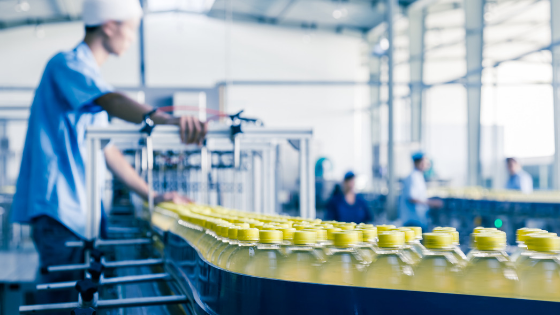Most of us don’t think twice about where our food comes from. We buy it from the store, take it home, eat it, and the rest, as they say, is history.
Until a food recall is issued.
In July 2019, British multinational grocery company Tesco issued a recall of four flavors of bottled drinks. Here’s what you need to know about the recall and how to make sense of food recalls as a whole.
What’s in the Recall?
Tescos issued a recall for four flavors of their Tesco Finest Fruit Presse drink, including the Sparkling Valencia Orange & Passionfruit Presse and the Lemon & Mint Presse.
According to the company, the recall was due to fermentation in the bottles. This fermentation created the risk that drinks could spoil in the bottles, making them potentially unsafe for consumption. There is also the risk that fermentation could create built-up pressure that could cause bottles to explode.
All batch codes are said to be affected. Tesco put up point-of-sale notices in all stores explaining what products were affected by the recall, why the products were being recalled, and advising customers on what to do if they bought affected products.
How are Unsafe Products Discovered?
Unsafe products take many forms, which makes discovering them an ongoing process for regulators and safety managers. Ideally, managers would prefer to catch unsafe products before foodborne illnesses take effect since the product will have already hit the market by that point.
In the United States, most food recalls are issued due to undeclared allergens or contamination, either by microbes or some other kind of foreign matter.
Unsafe products may be identified directly by the manufacturer, who must then inform the USDA Food Safety and Inspection Service (FSIS) or the Food and Drug Administration (FDA) of an unsafe product.
Alternately, local, state, or federal regulatory agencies, including the FDA and FSIS, may discover unsafe products independently of the manufacturer and issue recalls of their own accord for consumer protection.
Other federal agencies may also identify unsafe products if those products fall within their purview. The Centers for Disease Control & Prevention (CDC) and the Department of Defense (DoD) are two examples of agencies that may report concerns to FSIS and the FDA.
If a product does make it to the market and a consumer picks up a contaminated product, consumers also have the power to rectify the problem. They can report the issue to their local public health department, or they can report the issue directly to FSIS.
What You Need to Know About Food Recalls
When a recall hits the news, the first thing to remember is to stay calm, even if you bought and consumed an affected product.
If you have questions about a recall, the FDA and USDA both provide information about food recalls on their websites. You can also check for any current recalls if you’re not sure whether a product has been affected.
If you purchased a contaminated product, throw it out and check your pantry for any other potentially contaminated items. You can also return these items to the store.
If you have a vulnerable immune system or experience any health problems that may be related to the contaminated food, speak with your physician right away.
Taking Charge of Food Safety
Recalls may seem frightening, but they’re one way that manufacturers and governments can help mitigate public health concerns attached to contaminated products. And at the end of the day, you have the ability to take charge of food safety.
If you want to learn more about food safety, make sure to check out our blog for more useful posts, like this sanitation checklist for food manufacturing equipment.
